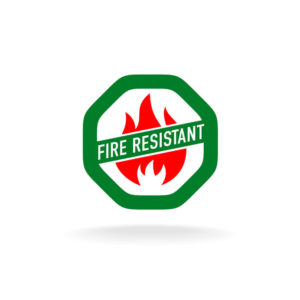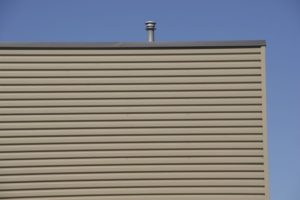Category: Uncategorized
Some Pointers for Getting Your House Ready for Winter
Winter is harsh on any building, homes included, so it is very important to get your house ready for the cold season to make the period easier for the building as well as for you. Here are a few things that you should do:
- Prevent damage caused by frozen water – when temperatures outside drop, water freezes and turns into ice. When ice accumulates in tight places, such as hoses, sprinklers or faucets, the build-up can cause serious damage, so one of the first and most important things to do before winter sets in is to drain the water from your outdoor appliances.
- Check the heating – test your entire heating system before winter. Check the heat pump, the furnace, the heaters and make sure all the issues are fixed before the weather turns cold.
- Preparing the roof – make sure the roof is clean before the first snow comes. A clean roof performs better even with a thick layer of snow on top. Also make sure you a highly skilled Connecticut masonry professional out to make sure no repairs are needed before the cold hits.
- Preparing the gutters – the same goes for clean gutters as well. Clean gutters can hold the weight of the snow without getting damaged and they can also direct melted snow away from the walls more efficiently.
Should You Consider Installing Composite Siding?
Composite siding panels are very popular for the extraordinary benefits they offer – as a matter of fact, concrete is the number one siding material across the nation, preferred by construction professionals as well as by homeowners. You will find that the masonry restoration Connecticut companies do a great job with the composite siding. If the following benefits appeal to you, then yes, you should definitely consider installing composite siding:
- Variety in terms of style – composite is a very flexible material that can be made to resemble various other materials, such as wood and it can also be painted to any color that matches your tastes and the overall appearance of your building;
- Superior durability – composite material does not absorb humidity, it is resistant to heat and to extreme weather conditions such as harsh winds or wide temperature variations as well, so your concrete panels can stay on the wall for decades without showing the slightest sign of deterioration;
- Quick and easy installation – composite siding panels are lightweight, easy to carry and designed to ensure quick and easy installation, even when installed in a DIY fashion, without involving professionals;
- Affordability – composite is among the cheapest materials used in siding panels,
- Low maintenance needs – you might want to refresh the appearance every now and then by repainting the surface of the panels, but other than that, composite panels need very little attention.
Some Reasons to Hire Insurance Adjusters
Insurance adjusters are independent insurance experts who are usually hired by the owner of the property that has suffered damage because of a storm, a fire, a hurricane, a flood, vandalism, burglary, theft or other, similar events to determine the amount that can be claimed from the owner’s insurer and to provide help with the claims process as well. They are very helpful when it comes to working with the building restoration professionals and getting the insurance company to pay for the damages. If you are currently on the fence whether to hire an adjuster to help you with your insurance claim, here are a few of the most important tasks these experts can help you with:
- Initial damage inspection – insurance adjusters not only inspect the damaged property, but they also document every detail of the damage with measurements, photos and videos to be able to provide an accurate estimate of the amount to be claimed;
- They assist the owner of the damaged property with the filing process, making sure that the claim documents are filled in correctly and submitted by the deadline;
- They assist the property owner during the negotiations with the insurance company.
Most adjusters work on a contingency basis, which means that they get paid only if they obtain a compensation and their fees are calculated as a percentage of the compensation obtained, so if you hire an adjuster, you don’t need to worry about having to pay high fees out of your pocket.
The Benefits of Good Fire-Retardant Roofing Shingles
The technical specifications attached to roofing shingles include not only details related to weight, size and strength, but a fire-retardant rating as well – this is the detail you should check if you need shingles for a building located in a fire-prone area or you are looking for shingles that provide enhanced protection against fires. However, browsing shingle descriptions is time-consuming, so here are the types of shingles that have the highest fire-retardant rating:
- Fiberglas-based asphalt – more than two-thirds of all shingle roofs in the US use this type of shingles, preferred for its attractive appearance, the low costs and the excellent fire resistance;
- Concrete – the material is popular for residential roofs and they are also frequently chosen for industrial and commercial applications specially for its great fire-retardant features. However, these great and resistant shingles are quite heavy, so before the final decision regarding the roofing material it is recommended to check building resistance figures (concrete shingles are not suitable for very lightweight structures that cannot hold up very heavy roofs);
- Metal – metal shingles are lightweight and resistant to moisture, heat and fires. Another feature that makes metal shingles so popular is easy installation – a metal roof can be put up very quickly, even without removing the old roof. All three are great roofing choices and can be installed by a locally owned commercial roofing Connecticut company.
What Is Roofing Flashing For?
Roofing flashing is a relatively small, but extremely important part of any roof. It consists of pieces of material installed in roof areas where two roof parts are joined and its role is to strengthen and to waterproof the area weakened by the discontinuity caused by the joining process. Flashing is used on all types of roofs – whether you have shingle roof or tile, metal or membrane roofing, you need flashing around chimneys, skylights and other types of inserts as well.
Roofing flashing needs to provide superior protection in the area of application, therefore it is made from impervious, corrosion resistant material, such as special metal alloys, usually galvanized steel copper aluminum or rubberized asphalt.
Flashing installation requires special knowledge, so it is recommended to hire an expert commercial roofing CT professional for the task. The installation method varies depending on the peculiarities of the area where the flashing will be fixed, but the process usually involves the usage of special adhesives and professional tools. Flashing installation is obviously done on the roof and many of the adhesives need to be melted before being used, so flashing installation requires not only expertise, but special safety measures, such as the usage of safety equipment, protective garments and non-slip shoes as well.






















